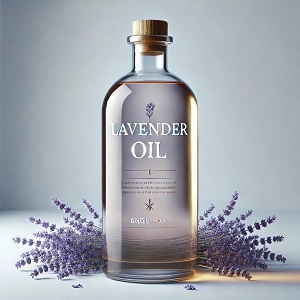
Essential Natural Fenugreek Oil
Fenugreek oil, derived from the seeds of the fenugreek plant, has been valued for generations for its diverse uses. Growing fenugreek is simple and suitable for small farms and larger agricultural setups.
This resilient plant thrives best in Mediterranean-style climates but can adapt well to temperate regions.
Farmers typically sow the seeds in early spring or autumn, allowing enough space for the plant to grow. Its well-developed root system ensures efficient nutrient absorption, making it an adaptable and rewarding cultivated crop.
Once harvested, the seeds thoroughly dry before being cold-pressed or steam-distilled to extract the valuable oil.
The cold-press method retains more nutrients, making it the preferred method for producing high-quality fenugreek oil. This oil is then filtered and packaged for use.
Sustainable cultivation practices and organic farming methods can further enhance the purity and efficacy of the final product, ensuring that consumers receive a high-grade oil free from harmful chemicals or additives.
Primary Benefits of Fenugreek Oil

Enhances Scalp and Hair Vitality
Fenugreek oil regularly nourishes the scalp, promoting a soothing and balanced environment. Its natural anti-inflammatory and antifungal properties reduce dryness, flakiness, and irritation, leaving the scalp refreshed and hair healthier.
Fenugreek oil also helps improve the texture and shine of hair by deeply nourishing the strands, promoting smoother and more manageable hair. For hair loss or thinning, fenugreek oil stimulates hair growth by improving blood circulation to the scalp.
Supports Digestive Wellness
Fenugreek oil contains compounds that can aid digestion by promoting the production of digestive enzymes. It is known to help relieve common digestive discomforts like bloating, indigestion, and acid reflux. Including fenugreek oil in small amounts in the diet or massaging it on the abdomen is believed to help ease digestive issues.
Soothes Irritated Skin
Its anti-inflammatory and antioxidant properties effectively calm redness, reduce swelling, and promote faster recovery of damaged skin. The oil is rich in vitamins, particularly vitamin C, which supports skin regeneration and improves elasticity.
When applied topically, fenugreek oil can help with conditions like eczema, psoriasis, and acne by reducing inflammation and controlling excess oil production. It is also a great natural moisturizer, providing deep hydration to dry or chapped skin without clogging pores.
Acts as a Natural Anti-Aging Agent
Rich in antioxidants, fenugreek oil helps combat oxidative stress, a critical factor in aging. By neutralizing free radicals, the oil slows the appearance of fine lines, wrinkles, and age spots.
The antioxidants also encourage the repair of skin cells, leading to a more youthful complexion. Additionally, the oil helps increase collagen production, which is essential for maintaining skin elasticity and firmness over time. Using fenugreek oil regularly as part of an anti-aging skincare routine can help maintain smoother, more radiant skin.
Aids in Hormonal Balance
Fenugreek oil has been traditionally used to support hormonal balance, especially for women. It contains phytoestrogens, which mimic estrogen, and this can help ease symptoms of hormonal imbalances such as irregular menstruation, menstrual cramps, and symptoms related to menopause. Fenugreek oil may also promote lactation for breastfeeding mothers by stimulating breast milk production.
Boosts Cardiovascular Health
The compounds help bad LDL cholesterol while increasing good HDL cholesterol. This oil may help prevent plaque buildup in arteries, reducing the risk of cardiovascular diseases such as atherosclerosis and hypertension. Fenugreek oil also contains potassium, which helps maintain healthy blood pressure levels.
Disadvantages of Fenugreek Oil

While prickly pear is generally well-tolerated, some individuals with specific sensitivities to cacti or similar plants might experience mild reactions.
Hormonal Effects:
Fenugreek has mild estrogenic properties, so individuals with hormone-sensitive conditions should use it cautiously.
Digestive Issues:
Overuse may cause digestive upset, such as diarrhea or stomach discomfort.
Studies on fenugreek oil highlight its potential health benefits, but research is still ongoing to confirm many of its traditional uses studies, and what people say about it:
Studies on Fenugreek Oil
Hormonal Balance and Lactation Support
Several studies have explored the effects of fenugreek on health, particularly its impact on hormonal balance and lactation. The presence of phytoestrogens in fenugreek oil mimics estrogen and stimulates milk production.
Digestive Health
Research has shown that fenugreek oil digestion. Its ability to relieve bloating, gas, and indigestion is well-documented in clinical and anecdotal sources, but scientific backing is still in its early stages.
Diabetes Management
Fenugreek has the potential to regulate blood sugar levels. A clinical study in Phytotherapy Research suggested that fenugreek seed oil may improve insulin sensitivity, making it a promising supplement for people with diabetes. Although more extensive studies are required, fenugreek’s traditional use as a remedy for balancing blood sugar has some early scientific backing.
What People Say About Fenugreek Oil
Positive Testimonials
Many users praise fenugreek oil for enhancing hair growth and improving skin conditions. People who use it for scalp issues or hair loss report noticeable improvements after consistent application. Regarding skincare, users have shared that it helps calm irritated skin and provides a natural glow.
Caution and Allergic Reactions
While many people appreciate the benefits of fenugreek oil, a few caution against its use, particularly for those with legume allergies. Some individuals report allergic reactions, including rashes or digestive discomfort. Therefore, before applying the oil widely or ingesting it.
Fenugreek oil is well-regarded by those who use it, especially in natural beauty and wellness routines. However, more scientific research is needed to confirm the broader health benefits and ensure its safety for various applications.
Fenugreek in various regions, but it thrives in specific climates and soils.

Here are the areas where fenugreek is grown abundantly:
India
India is the largest producer of fenugreek, particularly in states like Rajasthan, Gujarat, Uttar Pradesh, and Madhya Pradesh. The Indian climate, especially in Rajasthan, is ideal for fenugreek cultivation due to its semi-arid conditions and well-drained soil. Fenugreek is a staple in Indian cuisine and traditional Ayurvedic medicine.
Egypt
Egypt has a long history of cultivating fenugreek, and the Nile River region remains one of the critical areas for its production. The warm climate and fertile soils along the Nile River allow for high-quality fenugreek crops. Fenugreek has been used in Egypt for centuries, dating back to ancient Egyptians, who valued it for its medicinal properties.
Morocco
Morocco is another region where fenugreek is grown in abundance. The country’s moderate climate and rich, well-drained soil make it ideal for fenugreek farming—Moroccan fenugreek in local cuisine, traditional herbal remedies, and cosmetic products.
Pakistan
Fenugreek is a plant found in Pakistan.
Mediterranean Region
Countries in the Mediterranean, including Greece, Italy, and Turkey, grow fenugreek on a smaller scale than India or Egypt. These countries’ warm, sunny climate and well-drained soil conditions support fenugreek cultivation, primarily for culinary use and export.
China
China also grows fenugreek, though it is less common than in other countries. Chinese fenugreek is a traditional medicine used for various health applications.
In summary, fenugreek is most commonly grown in regions with a warm or semi-arid climate and well-drained soil, with India being the largest producer globally.
Frequently Asked Questions About Fenugreek Oil
- How does fenugreek oil benefit hair growth?
- Fenugreek oil is rich in nutrients that strengthen hair follicles and promote healthy growth. When used regularly, its natural compounds can help reduce hair fall and improve hair thickness.
- Is fenugreek oil suitable for sensitive skin?
- Fenugreek oil is known for its gentle properties, making it generally safe for sensitive skin. However, testing a small amount on the skin is a good idea first to ensure no adverse reaction.
- How can they use fenugreek oil effectively?
- To get the most out of fenugreek oil, warm a small amount and massage it into the scalp or skin. Leave it on for 30 minutes to an hour before rinsing it off. For the best results, use it 2-3 times a week.
Important conclusion
Fenugreek oil is a plant-based goldmine extracted from fenugreek seeds, known to offer health and beauty advantages. Packed with essential nutrients, it aids digestion and gives healthy skin and strong hair. Fenugreek oil performs a dual role in alternative medicine and modern wellness by offering an effective natural remedy that is both anti-inflammatory and antioxidant.


